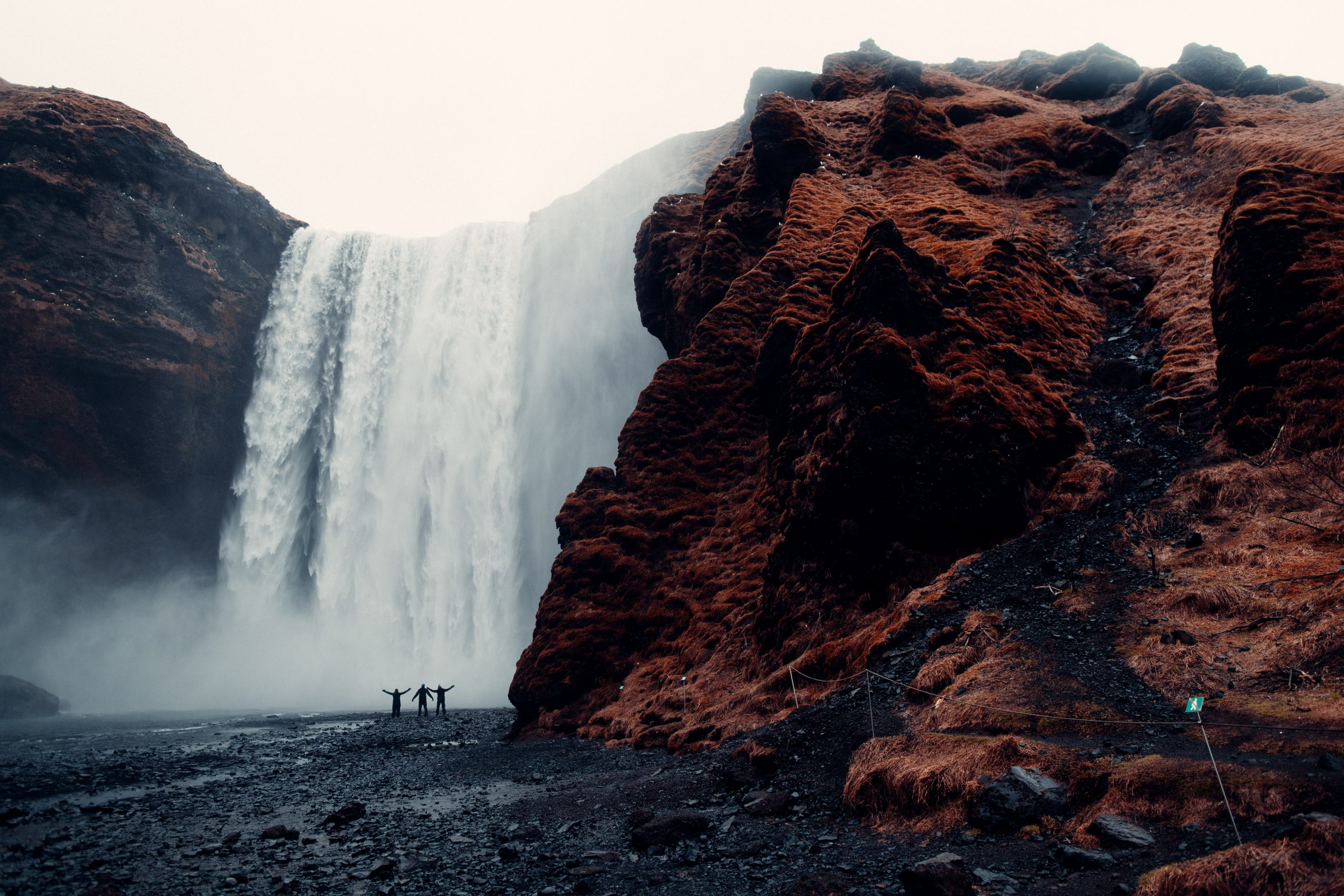In today’s world, where environmental sustainability is becoming increasingly important, businesses are tasked with ensuring their operations align with water conservation regulations. Understanding and complying with these regulations can be a complex and daunting task. That’s why it is crucial for businesses to seek legal guidance to navigate the intricate landscape of water conservation claims compliance. By enlisting the expertise of a knowledgeable lawyer, businesses can gain a comprehensive understanding of the laws and regulations surrounding water conservation. This article explores the importance of water conservation claims compliance for businesses and highlights key FAQs to shed light on this critical subject.
Understanding Water Conservation Claims Compliance
Water conservation claims compliance refers to the adherence of businesses to laws, regulations, and best practices in making claims about their water conservation efforts. It involves ensuring that businesses accurately represent their water-saving initiatives and comply with all applicable guidelines. This article will explore the importance of water conservation claims compliance, the laws and regulations surrounding it, enforcement measures for non-compliance, common challenges faced, key considerations for businesses, steps to ensure compliance, potential legal issues, benefits of compliance, and frequently asked questions.
Why is Water Conservation Claims Compliance Important?
Water conservation claims compliance is crucial for several reasons. Firstly, it allows businesses to demonstrate their commitment to environmental sustainability and responsible resource management. By accurately representing their water conservation efforts, businesses can enhance their reputation and foster consumer trust. Additionally, compliance ensures fairness in the marketplace by preventing misleading or false claims, which can mislead consumers and harm competitors. Moreover, regulatory compliance helps businesses avoid legal trouble and potential penalties for non-compliance. Overall, water conservation claims compliance is an essential aspect of corporate social responsibility and can contribute to long-term business success.

Laws and Regulations for Water Conservation Claims
Various laws and regulations govern water conservation claims, and their specific requirements may vary depending on the jurisdiction. In the United States, for example, the Federal Trade Commission (FTC) enforces the Green Guides, which outline guidelines for environmental marketing claims. These guides require businesses to provide clear and accurate information about their water conservation efforts and avoid deceptive practices. Additionally, state and local governments may have their own regulations concerning water usage, disclosure, and reporting. It is crucial for businesses to familiarize themselves with the relevant laws and regulations applicable to their operations to ensure compliance.
Enforcement Measures for Non-Compliance
Non-compliance with water conservation claims can result in severe consequences for businesses. Enforcement measures may include fines, penalties, cease and desist orders, and injunctions prohibiting the use of misleading claims. In some cases, businesses that engage in false advertising or fraudulent practices may face legal action from consumers or competitors. Moreover, non-compliance can lead to reputational damage, loss of consumer trust, and a decline in market share. Businesses must prioritize water conservation claims compliance to avoid these adverse outcomes and maintain a competitive advantage.
Common Challenges in Water Conservation Claims Compliance
Businesses often face challenges when striving for water conservation claims compliance. One common challenge is the lack of clarity regarding the applicable laws and regulations. With regulations varying by industry and jurisdiction, businesses must invest time and resources into understanding the requirements specific to their operations. Additionally, accurately quantifying and measuring water conservation efforts can be complex, particularly for businesses with diverse operations or complex supply chains. Ensuring the reliability and accuracy of water usage data is crucial in creating credible claims. Another challenge is the risk of greenwashing, which occurs when businesses mislead consumers by providing vague or unsubstantiated claims about their water conservation efforts. Overcoming these challenges requires a proactive approach, clear communication, and a commitment to transparency and accountability.
Key Considerations for Businesses
To achieve water conservation claims compliance, businesses should consider several key factors. Firstly, they must determine the applicable laws and regulations that govern their industry and geographic location. Consultation with legal experts or regulatory agencies may be necessary to ensure accurate understanding and interpretation. It is also important to create clear and accurate water conservation claims that provide meaningful information to consumers. Claims should be supported by data and evidence to build consumer trust and avoid misleading practices. Moreover, businesses must beware of greenwashing and avoid making exaggerated or false claims about their water-saving initiatives. Implementing effective water conservation practices, seeking third-party certifications, and regularly assessing compliance are also crucial considerations.

Ensuring Compliance in Water Conservation Claims
To ensure water conservation claims compliance, businesses should establish internal procedures and protocols. This includes assigning responsibility for compliance oversight, developing clear guidelines, and providing employee training on compliance requirements. Monitoring and reporting water usage data are essential to track progress and demonstrate compliance. Regular internal audits and verification processes should be conducted to identify any non-compliance issues and implement corrective measures promptly. Documentation and record-keeping should be maintained, including evidence of compliance efforts, certifications, and data supporting water conservation claims.
Potential Legal Issues in Water Conservation Claims
Misleading or false advertising claims are common legal issues faced by businesses in water conservation claims. Making inaccurate or exaggerated claims about water conservation efforts can lead to fraud or deceptive advertising allegations. Violation of consumer protection laws is another concern, as businesses must ensure their claims do not mislead or harm consumers. Contractual obligations and disputes may also arise if a business fails to fulfill its commitments regarding water conservation. The risk of litigation and class action lawsuits is present, particularly if consumers or competitors suffer harm due to misleading claims. Finally, non-compliance can result in significant reputational damage, which can impact business performance and relationships with stakeholders.

Benefits of Water Conservation Claims Compliance
Compliance with water conservation claims offers numerous benefits for businesses. Firstly, it has a positive impact on the environment by reducing water consumption and promoting sustainable practices. This can contribute to conserving vital water resources and preserving ecosystems. Water conservation initiatives often lead to cost savings and increased operational efficiency, as businesses become more mindful of their water usage and implement innovative solutions. Compliance also enhances consumer trust, as accurate claims build credibility and reinforce a business’s commitment to environmental responsibility. Moreover, water conservation claims compliance can provide businesses with a competitive advantage by differentiating them from competitors who do not prioritize sustainability. Finally, compliance contributes to improved corporate social responsibility, demonstrating a business’s commitment to sustainable practices and ethical behavior.
Steps to Ensure Water Conservation Claims Compliance
To ensure water conservation claims compliance, businesses should follow several essential steps. Firstly, they should identify the relevant laws and regulations that apply to their industry and geographic location. This may require legal assistance or consultations with regulatory agencies. Reviewing and updating claim statements is crucial, ensuring they accurately reflect the business’s water conservation efforts. Conducting water usage assessments is necessary to quantify and measure conservation efforts effectively. Implementing technical solutions, such as efficient fixtures or water recycling systems, can further support water conservation goals. Seeking third-party verification or certification provides external validation of a business’s efforts and can enhance credibility.
Common FAQs on Water Conservation Claims Compliance
What are some common mistakes businesses make when claiming water conservation efforts?
Businesses often make the mistake of overestimating or exaggerating their water conservation efforts. This can lead to misleading claims and potential legal issues. Another common mistake is the lack of transparency and supporting data, making it difficult for consumers to evaluate the validity of claims. Furthermore, failure to keep up with changing regulations and accurately interpret them can result in non-compliance.
Are there specific regulations for different industries?
Yes, regulations may vary by industry and jurisdiction. Certain industries, such as agriculture or manufacturing, may have specific guidelines or reporting requirements due to their significant water usage. It is essential for businesses to research and understand the regulations that apply to their particular industry sector.
What penalties can businesses face for non-compliance?
Penalties for non-compliance can vary depending on the jurisdiction and severity of the violation. Businesses may face fines, penalties, cease and desist orders, injunctions, or even legal action from affected parties. The financial and reputational consequences of non-compliance can be significant.
Do businesses need to disclose their water conservation practices?
While specific disclosure requirements may vary, it is generally recommended for businesses to disclose their water conservation practices accurately and transparently. This helps build consumer trust and demonstrates a commitment to sustainability.
Is there a specific agency responsible for enforcing water conservation claims compliance?
The enforcement of water conservation claims compliance can vary depending on the jurisdiction. In the United States, the Federal Trade Commission (FTC) is primarily responsible for enforcing compliance with the Green Guides. However, other regulatory agencies at the federal, state, or local level may also have oversight in specific regions or industries.
